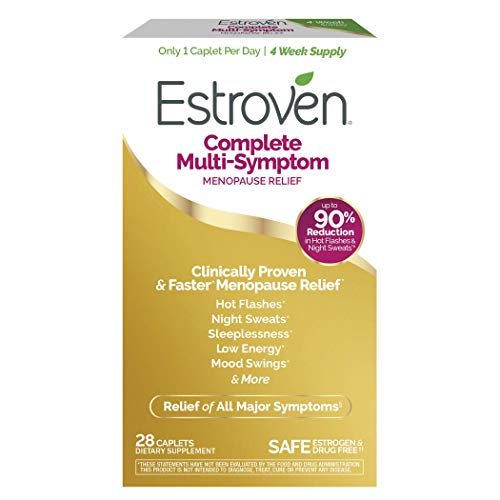Menopause
Menopause is a natural and normal biological process that occurs in women as they age.
It is a stage in a woman's life when her menstrual periods cease, marking the end of her reproductive years. Menopause is typically diagnosed when a woman has gone without a menstrual period for 12 consecutive months. The term "menopause" is derived from two Greek words: "menos," meaning month or menstruation, and "pausis," meaning cessation or stop. Therefore, "menopause" literally translates to the "cessation of menstruation." This natural transition is a result of the aging process and the decline in the production of reproductive hormones, particularly estrogen and progesterone.
The average age of menopause in women is around 51, but it can occur earlier or later. The transition leading up to menopause is called perimenopause, during which women may experience symptoms such as hot flashes, night sweats, mood swings, and changes in menstrual patterns.
While menopause itself is not a disease, the hormonal changes associated with this life stage can lead to various symptoms and health concerns. Some women may experience more severe symptoms that impact their quality of life. In such cases, healthcare professionals may offer supportive measures or hormone replacement therapy to alleviate symptoms.
Symptoms
The most common symptoms of menopause include:
Irregular Menstrual Periods:
Changes in the menstrual cycle, including irregular periods or skipped periods, are common during perimenopause (the transition leading up to menopause).
Hot Flashes and Night Sweats:
Sudden feelings of heat, especially in the upper body and face, accompanied by sweating. Night sweats can disrupt sleep.
Vaginal Dryness and Discomfort:
Decreased estrogen levels can lead to vaginal dryness, itching, and discomfort during intercourse.
Sleep Disturbances:
Changes in sleep patterns, including difficulty falling asleep or staying asleep, may occur.
Mood Swings and Irritability:
Hormonal fluctuations can contribute to mood swings, irritability, and changes in emotional well-being.
Fatigue:
Some women may experience increased fatigue or a general lack of energy.
Difficulty Concentrating:
Hormonal changes can affect cognitive function, leading to difficulties with memory and concentration.
Changes in Libido:
Decreased estrogen levels can impact sexual desire and arousal.
Joint and Muscle Pain:
Some women may experience joint and muscle pain during menopause.
Weight Gain:
Changes in metabolism and hormonal fluctuations can contribute to weight gain, particularly around the abdomen.
Hair Changes:
Thinning hair or changes in hair texture may occur.
The severity of symptoms can vary and some symptoms may be temporary, while others may persist.
Menopause is officially diagnosed when a woman has gone without a menstrual period for 12 consecutive months.
The age at which menopause occurs can be influenced by various factors, including genetics, overall health, lifestyle, and geographic location. Some women may experience premature menopause (before the age of 40) due to genetic factors, medical treatments, or certain health conditions. On the other hand, women who have a later onset of menopause may experience it in their mid to late 50s.
Fertility
The average age of menopause is around 51, but the ability to conceive starts to decline well before that.
Fertility Decline:
Fertility begins to decline in the late 20s and early 30s.
After the age of 35, the decline becomes more significant.
By the age of 40, fertility is noticeably reduced.
Perimenopause:
Perimenopause, the transition leading up to menopause, typically begins in a woman's 40s.
During perimenopause, menstrual cycles may become irregular, and fertility continues to decline.
Menopause:
Menopause is officially declared when a woman has not had a menstrual period for 12 consecutive months.
While menopause typically occurs around the age of 51 on average, it can happen earlier or later.
Postmenopause:
Postmenopause refers to the period following menopause when a woman is no longer able to conceive naturally.
The ovaries cease to release eggs, and hormonal changes associated with menopause are in full effect.
Individual variations exist, and some women may experience menopause earlier or later than the average. Additionally, while natural conception becomes increasingly challenging with age, assisted reproductive technologies such as in vitro fertilization (IVF) can offer options for some women who wish to conceive at later stages in life.
Manageing Menopause
Managing symptoms during menopause can involve a combination of lifestyle changes, dietary adjustments, and, in some cases, medications or supplements. Common approaches to managing menopausal symptoms:
Hormone Replacement Therapy (HRT):
HRT involves the use of estrogen and, sometimes, progestin to supplement the declining hormone levels during menopause. It can help alleviate symptoms such as hot flashes, night sweats, and vaginal dryness. However, the decision to use HRT should be made based on an individual's health history and potential risks.
Non-Hormonal Medications:
Certain medications, such as selective serotonin reuptake inhibitors (SSRIs) and selective norepinephrine reuptake inhibitors (SNRIs), originally used for mood disorders, have been found to be effective in managing hot flashes.
Vaginal Estrogen Therapy:
For women experiencing vaginal dryness and discomfort, localized estrogen therapy in the form of creams, tablets, or rings can be prescribed.
Gabapentin and Pregabalin:
These medications, commonly used for nerve pain, may help reduce hot flashes.
Black Cohosh:
Some women use black cohosh supplements for relief from hot flashes and mood swings. However, the evidence on its effectiveness is mixed, and it should be used with caution.
Soy and Phytoestrogens:
Foods rich in phytoestrogens, such as soy products, may offer some relief for certain symptoms. However, evidence on their effectiveness is not conclusive.
Calcium and Vitamin D:
Adequate calcium and vitamin D intake is important for bone health during menopause. Supplements may be recommended if dietary intake is insufficient.
Exercise:
Regular physical activity can help manage weight, improve mood, and reduce the risk of osteoporosis.
Healthy Diet:
A balanced diet with an emphasis on fruits, vegetables, and whole grains can contribute to overall well-being during menopause.
Mind-Body Techniques:
Practices such as yoga, meditation, and deep-breathing exercises may help reduce stress and improve sleep.







